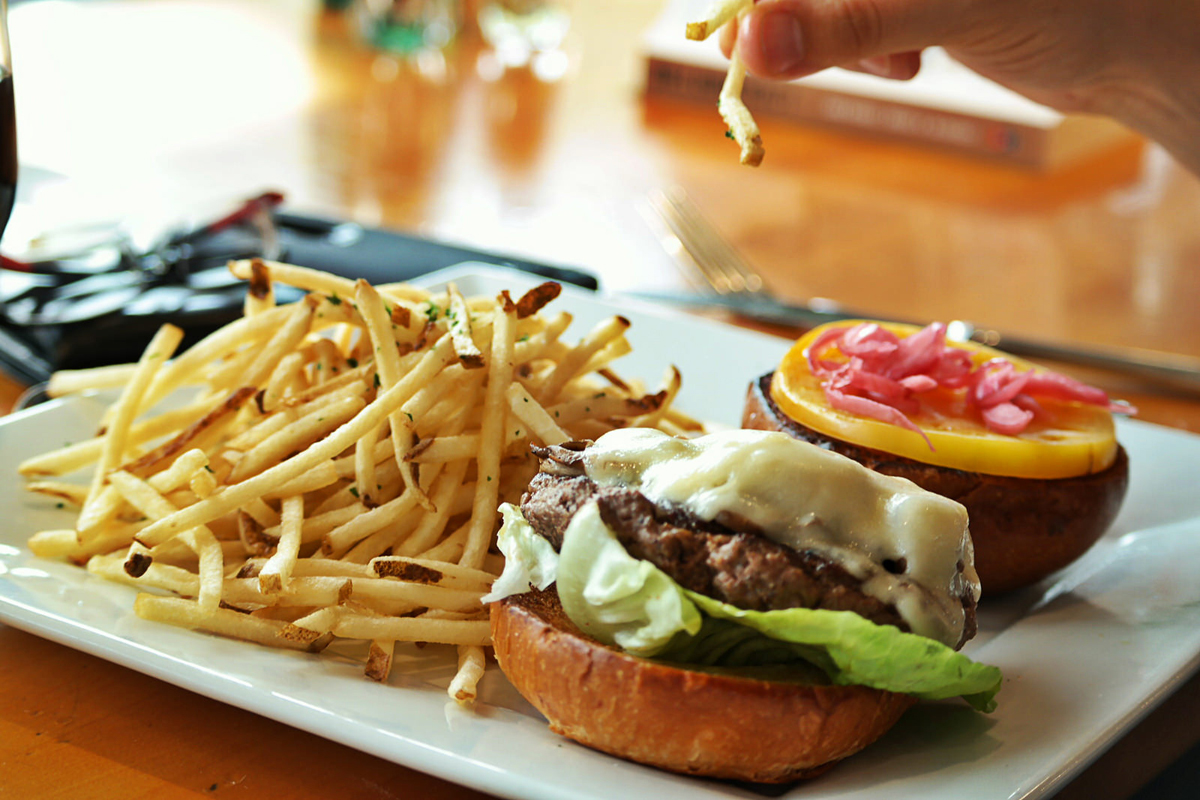Study: This Drug May Change Your Brain’s Response to Food

Burger photo by Alice Salles via Flickr/Creative Commons
According to a new study from Beth Israel Deaconess Medical Center (BIDMC) there may be a drug that can change the way your brain responds to desirable (read: junk) foods.
“We know that everything that controls our body weight and metabolism is integrated by the brain,” said Christos Mantzoros, senior author of the study, in a statement. “This includes both internal stimuli such as hormones and stress, and external stimuli, such as the smell and appearance of enticing foods.”
In other words, your brain is hard-wired to want certain foods. That may explain why you always decide you’ll have a side salad—but somehow end up blurting out that you’d like fries as soon as the waiter takes your order.
Researchers have studied how desirable food affects brain activity before, in the past focusing on topics like how to dictate which foods the body craves. For BIDMC’s study, researchers used fMRI imaging to zero in on the hormone responsible for regulating metabolism, known as GLP. They also examined a diabetes and weight loss drug, liraglutide, that mimics the hormone, to see how it could impact weight loss.
In a preliminary study, the team looked at 22 brain tissue samples and found GLP-1 receptors in areas of the brain known as “reward regions.” They also found them in the cortical, or higher thinking, regions.
Researchers then studied 21 people with diabetes, who were treated with liraglutide. Half of the group took a placebo for a minimum of three weeks, while half remained on the medication. Then, the two groups switched. Subjects also underwent fMRI scans, in which they were shown images of desirable foods, such as cake and fried food, as well as less desirable foods, such as vegetables.
After examining the scans, researchers found that the drug was decreasing activity in the brain’s cortex, suggesting that those on the hormone-mimicking drug actually had less of a response to desirable foods. Though 21 people is a small sample size, the results suggest that the drug could be especially beneficial as a therapy for people who eat as a reward or overeat when under stress.
Don’t expect to pick up liraglutide at your local pharmacy yet, but lead author Mantzoros said in the statement that the study is promising.
“Our findings open the possibility for combination drugs for the treatment of obesity,” he said. “One-third of the U.S. population is obese and another one-third is overweight. This is a huge burden and increases the risk of diabetes, cardiovascular disease and many types of cancer. We need to continue to develop safe and effective therapies to combat this epidemic.”


